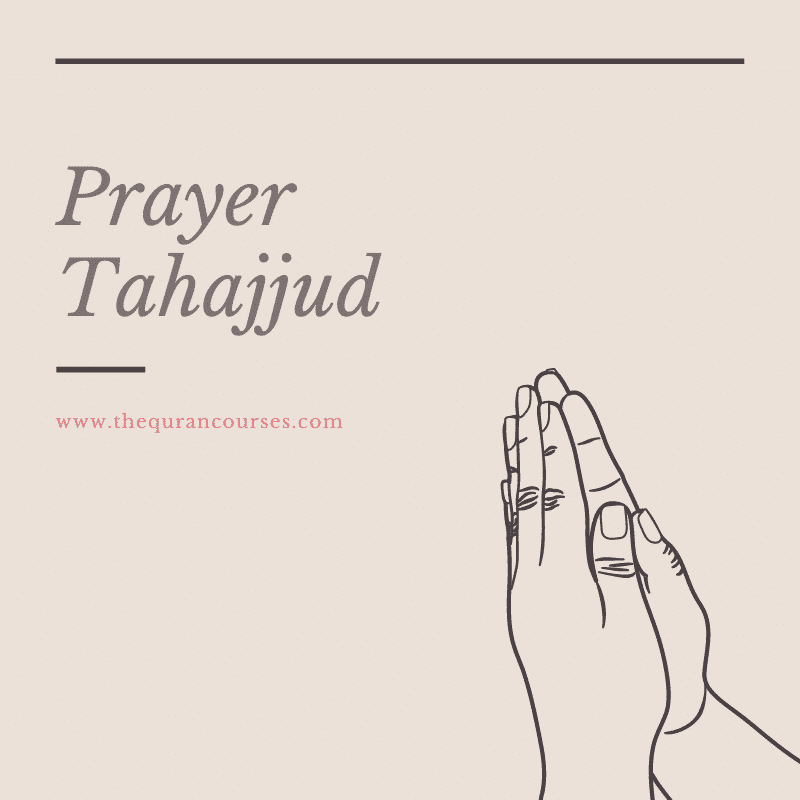Prayer tahajjud is a voluntary or nafl prayer. It is a nocturnal prayer aimed at gaining mental power and calm. It is also said to prevent sinful behavior. One of Islam’s Five Pillars, Prayer (Salat), is divided into four general categories; we will discuss it in detail in the following lines.
Prayer tahajjud
Before discussing in detail prayer tahajjud, we must understand the types of prayers in general.
- Fardh Salat: Islam’s most essential Prayer; it is obligatory, and failing to do so is considered a severe sin.
- Wajib Salat is obligatory, and failing to eat it is considered a terrible sin.
- Sunnah Salat: Known to be the practise of Prophet Muhammad (PBUH), Sunnah Salat is divided into Muakkadah and Ghair Muakkadah. The former must be done regularly, and failure to do so is considered a sin. Missing the latter one, which Prophet Muhammad (PBUH) is claimed to have done on occasion, is not considered criminal don’t consider punishable.
- Nafl: The final of the four primary forms of Prayer, Nafl is optional and frequently conducted for a specific virtue. It is not considered a sin to skip this Prayer.
What is the meaning of the Tahajjud Prayer?

The Tahajjud prayer, also known as Qiyam-u-lail, belongs to the fourth category of prayers, i.e., Nafl, suggesting that it is optional and not considered a sin if not performed.
Tahajjud is a commonly conducted prayer after Isha (the obligatory nocturnal Prayer) and before Fajr (the mandatory morning prayer).
Because the word tahajjud means “to give up sleep,” this Prayer is best recited in the latter part of the night.
According to Islam, Allah descends to the lowest heaven during this time of night to check on those devotedly worshipping and waking up in the middle of the night.
The Prayer tahajjud: How to Pray It (The Night Prayer)
Other prayers offered at night include the Prayer tahajjud (Prayer conducted by waking up after a night) and other prayers.
In Allah’s eyes, each moment has a distinct feature.
On the other hand, specific periods are more precious than others, and they should be taken advantage of.
And one of these periods that the Qur’an and the Prophet (PBUH) mention as valuable is at night.
The importance of Allah ascribes to the night, and its mysteries are immeasurable.
“The night, and it’s homing!” (Inshiqaq, 84:17). “
And by night, when it is still!..” (Dhuha, 93:2).
The secret of Allah’s nighttime swearing is a Divine window into our hearts and souls, allowing us to observe countless realities.
Instead of lying down in soft beds, prostration to God is with love and affection to please Him at night.
As a result, extra prayers said at night are critical for establishing immediacy with Allah.
As a result, one wishes and prays for as much Divine Love as one has at night.
Praying late at night is like meeting and speaking with one’s beloved late.
Being awake when everyone else is sleeping signifies being a part of a group of love and kindness.
Steps to pray

The steps for performing Prayer tahajjud are directly represented by the following steps:
Make a plan to get up after midnight
- Waking up and doing Wudu is a must.
- To pray, find a clean, peaceful, and dignified place.
- Remove all anxieties about the world from your heart.
Recitation of the Tahajjud
- Declare your purpose to pray.
- Tahajjud is usually accomplished by repeating Salah’s many rakats (cycles), the Muslim procedure for doing their daily prayers.
- Rakats are usually performed in pairs for the Tahajjud, so you’ll need to figure out how many rakats you’ll be doing at this time.
Perform two rakats
Emulate the Prophet Muhammad’s (PBUH) habit of reciting the following surahs after each Rakat during Prayer tahajjud:
- Recite the surah “Al-Kafirun” after reciting the Al-Fatihah during the first rakat.
- After reciting the Al-Fatihah for the second rakat, recite the surah “Al-Ikhlas.”
Repeat Rakats as needed when prayer tahajjud
After the rakats, say your prayers (dua).
You may add your dua after you’ve completed the number of rakats you set out to pray, as long as they’re sincere, polite, and made in entire devotion to Allah.
You might give these in long prostration in your own words and language.
You could wish to express your gratitude and appreciation to Allah, pray for strength and guidance, or make a particular request for assistance.
For example, you might pray to Allah for blessings for a friend who is going through a tough time, assistance with your worship, or spend a few moments thanking Him for a gift you received the day before.
Prayers should be spoken in a spirit of humility, fear, hope, and patience.
According to several ahadith, Allah is most open to our repentance at night. Thus this is an opportune time to beg for forgiveness for your mistakes and faults.
Recognize all of your wrongdoings, no matter how minor they seem; Allah may determine that a penalty is deserved even if you believe they are little.
Request pardon from Allah and make a sincere pledge not to repeat your misdeeds.
Use your fear of offending Allah to motivate you to improve as a Muslim.
Never lose faith in Allah’s kindness; the Qur’an informs us over 70 times that Allah is the Most Merciful.
Any prayer you give will be heard, and if Allah wills, your request will be fulfilled.
Conclusion
Read scripture verses on Prophet Muhammad’s (PBUH) Tahajjud practice.
Consult any of the countless references to the Prayer tahajjud in Islamic literature to understand its particular significance.
The Tahajjud, in particular, is referenced in the Quran and thoroughly explored in several ahadith.
It is, nevertheless, covered in the work of Islamic academics throughout the religion’s history.
To begin, read Sahih Bukhari’s Book 21 (Prayer at Night).
In this book, no less than 70 ahadith recount the Prophet’s (PBUH) customs about Tahajjud, demonstrating its importance in the life of a good Muslim.
The Tahajjud is also discussed in the Quran on several occasions, notably Surat 17:79 and Surat 39:9.
Read More: Is Qisas in Conflict With Intellectual And Emotional Norms?




Tahajjud is a profound voluntary prayer performed during the night, aimed at seeking mental tranquility and spiritual closeness to Allah. As an optional prayer, it holds significant virtue without being obligatory. Performing Tahajjud involves waking up after midnight, performing ablution, and praying in a peaceful environment. It is a special time for sincere supplication and reflection, highlighting the devotion and humility of a believer.